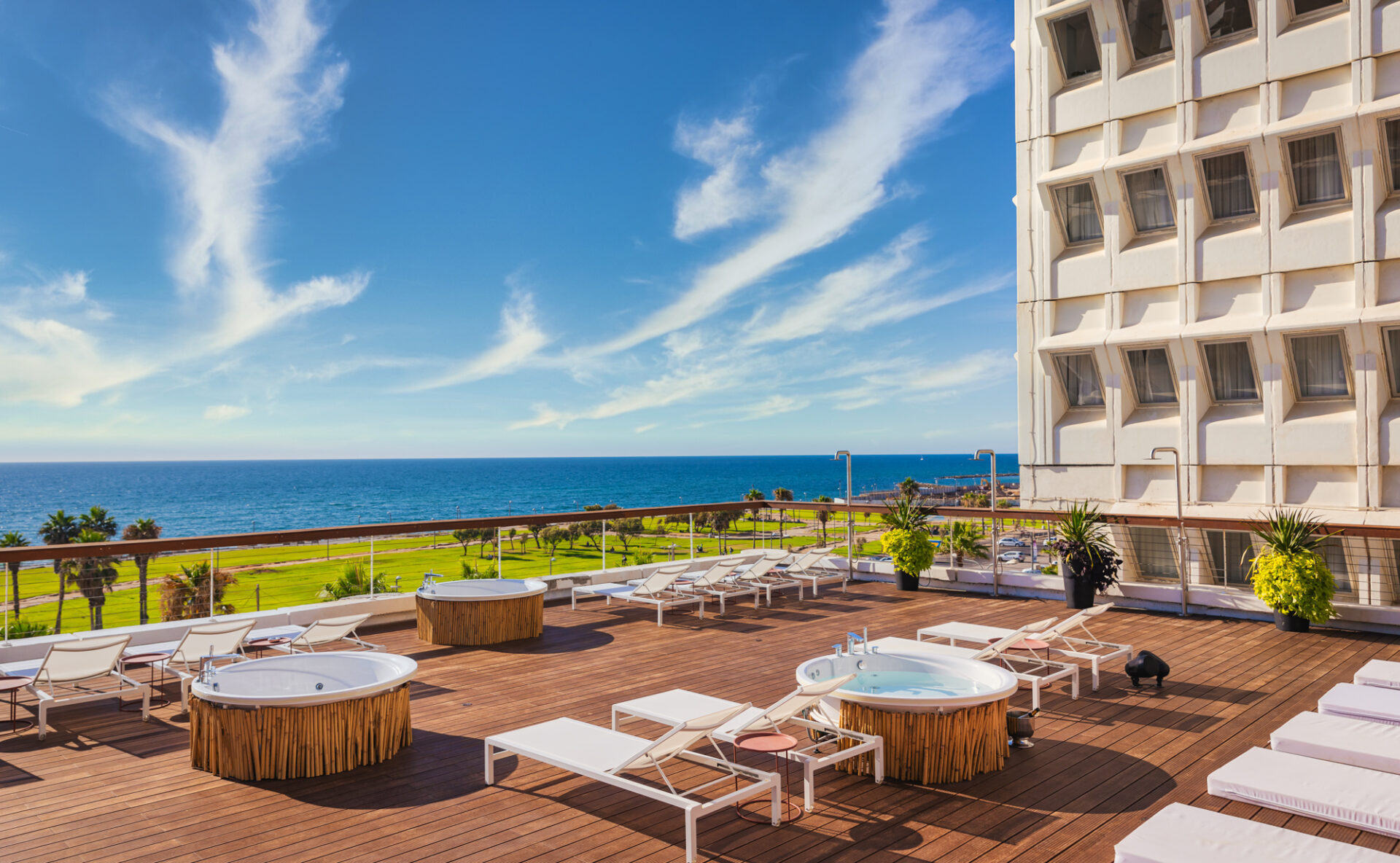From white elephant to trendy, affordable tourism
The Brown Hotel Group is renewing crumbling, neglected buildings in Tel Aviv and turning them into stylish but affordable places to enable travelers to visit one of the world’s most expensive cities

Max Kovalsky
Brut Hotel
TEL AVIV – From the outside, the Tel Aviv Textile and Fashion Center looks like a standard Israeli office building. Built starting in the 1960s in the era’s Brutalist architectural style, the center boasts six high-rise towers and a...










